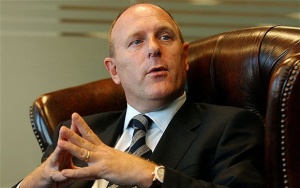Post Brexit Britain offers best of both worlds for FX firms as ‘passporting’ will help access to EU customers
As London’s post-Brexit business environment flourishes, we take a detailed look at how ‘passporting’ will ensure that British firms can continue vital business with European customers, with an industry perspective

Almost two months have passed since Britain’s electorate took to the polls to cast their vote on Britain’s future as an independent sovereign nation, unleashing itself from the shackles of the European Union’s defunct economy, lack of production, inability to modernize and giant cost to its own central bank (for that read its citizens!) but more importantly removing the burden of an entire continent being reliant on the production of the world’s most urbane, sophisticated and high-producing financial and technology center – London.
Those who doubted the future of London post Brexit only need look at the figures for reassurance. There are no developed financial markets economies in the entirety of the European Union, and the debt keeps piling up, resolved not by productive business, but by bailout after bailout whilst the entire continent slips further into old fashioned methodology, hampered by trade unions and a socialist European Commission and all of the social and economic problems that go with such a thing.
London employs only 0.00069% of Europe’s workforce, yet i is responsible for 16.8% of all tax receipts for the entire European Union. Now that’s what I call efficiency. Want to talk to an accomplished expert with detail perfect understanding of relationships between every component of the electronic trading ecosystem? London has them in abundance.
The vast majority of City firms, mostly in the institutional and retail electronic trading and brokerage sector, favored the Brexit, with a number of high profile industry leaders having personally backed the campaign, one such notable example being Peter Cruddas, the esteemed CEO and Founder of British electronic trading giant CMC Markets.
Mr. Cruddas, who built CMC Markets up from a start-up in 1989 with just £10,000 that he had saved to the worldwide renowned giant with a market capitalization of $811 million and its own institutional and proprietary technology divisions, has been a consistent proponent of the UK’s intent to leave the European Union, and along with most astute business leaders and FinanceFeeds’ standpoint that a post-Brexit Britain would be a world-class business environment, his perspective is indeed proving to be correct.
Nowhere in Europe can hold a candle to London, and now, just two months after the vote was cast and a bit of anticipated volatility has ensued, the upward surge is beginning to make its presence felt as the heavy stone that is Europe has been jetisoned and London rises even further to the top.
The Pound is at a 2 month high, and as FinanceFeeds reported yesterday, this is likely to cement the British sovereign currency as the very best major representing one of the best economies in the world.

Companies in the FX industry which are intrinsically British and have been established for many years, those including the aforementioned CMC Markets, along with IG Group, Hargreaves Lansdown (a £7 billion company with its own proprietary multi-asset platform and an IG Group white label HL Markets and whose co-founder Peter Hargreaves is vehemently pro-Brexit) ETX Capital, City Index (now GAIN Capital) as examples, customer bases are largely domestic although some of the British firms do have a significant amount of business from European customers looking for a top quality trading environment in the top jurisdiction via an established brokerage that invests in its own proprietary trading system as do all British companies.
Therefore, the only concern really that should enter the minds of those in the boardrooms of British firms is the consideration with regard to maintaining the ability to service and onboard mainland European customers post Brexit, as Britain’s FCA regulation will no longer be considered passportable under MiFID.
Today, this has been finally addressed by a paper from the Center for Policy Studies, which itself was founded by pro-independence Prime Minister Margaret Thatcher.
The paper puts forward the case that despite the potential challenges brought about by the Brexit, the exit from the European Union by Britain also creates opportunities.
Despite historical factors such as the UK’s timezone, language and legal system being in favour of the City after separating from the EU the Center for Policy Studies considers that a more competitive tax regime developed under previous chancellor George Osborne will also mean the UK remains a force to be reckoned with as a financial services hub.
“It would be foolish not to act to protect London’s reputation as the best place for banks to do business. While I respect the country’s decision to vote to leave the EU, my job as mayor is now to stand up for and protect the interests of London, and that includes the financial sector” – Siddiq Khan, Mayor of London
Mr Osborne often emphasized the importance that the government has placed on ensuring that London not only remains the institutional financial center for the world, but also remains the development center for financial technology that drives the indsutry forward. This has come to fruition. Most financial technology in use today has been developed in London, whether by the large banking institutions’ inhouse developers, or young Millennials at Silicon Roundabout, or indeed the FX industry’s top quality ancillary service providers.
Indeed, if a company commits a certain amount of its budget and resources toward R&D, no corporation tax is payable.
With regard to maintaining a client base from EU member states post-Brexit, London mayor Sadiq Khan has vowed to fight for the City’s passport, and the Center for Policy Studies noted that any reduction in UK exports of financial services to the EU would harm efforts to reduce the UK’s deficit, meaning that securing a rapid solution must become a high priority.
“Following Brexit, the government’s focus on financial services must be to offer reassurance on the issue of ‘passporting’, to ensure that new trading opportunities with financial centres outside the EU are pursued and to remove the UK from burdensome and costly regulations,” Center for Policy Studies paper authors Daniel Mahoney, Tim Knox and Jon Moulton said.
“It is now imperative that the government examines the best blueprint for the UK’s financial services industry. Switzerland has a successful finance industry outside the EEA, showing that alternative arrangements are very possible. London’s existing status as a global financial centre means that the UK is in an even better place to reach an agreement – given that EU businesses will also want to retain access to the UK’s financial services” stated the authors.

FinanceFeeds investigated the perspective from within the industry with regard to how specific companies will manage the cross border regulatory changes post Brexit, first of all speaking to Demetris Taxitaris, General Manager of MAP S Platis, which is a prominent law firm, management consultancy and EMIR reporting entity for the FX industry, based in Cyprus.
Mr. Taxitaris, who is a regulatory expert and has published several works on the matter, explained “Firms established in the UK operate in other EU countries via the passport rule, which allows them to do so without any constraints other than the ones already imposed in the UK, being their home country. It is not yet entirely clear what the new state of play shall be in case the UK decided to exit the EU.”
“For example, special rules or a transitional period may apply to avoid distortion of the common market and to ensure potential damage control from both sides. Such arrangements, which are likely in our view, shall become apparent following a decision to exit and not before” he said.
“If we assume that the EU passport will be lost at some point, then obviously firms shall need to find ways to operate in EU countries. One such way would be to set up a firm at another EU jurisdiction which will allow passporting into other EU countries. Other options may include the UK firms being treated as 3rd country firms and being subject to additional constraints when operating in EU countries either remotely or via a branch, but this would be subject also to bilateral agreements between the regulators of the UK and each EU country” – Demitris Taxitaris, General Manager, MAP S Platis
“Having said that, we are observing for some time now firms which apply a dual jurisdiction setup within the EU for various reasons, including agility and risk mitigation. Such firms could be much more responsive in any situation and can absorb any shocks more easily” he concluded.
In some respects, it appears at first glance as though the companies with FCA regulated offices in Britain which are owned by overseas entities that established British offices subsequent to their originally established operations in Europe may have a degree less bureaucracy to overcome, and the possibility of a ‘Brexit’ would not require any adjustments, because the license in Britain would apply to British customers, and the license held by the company’s main headquarters in Europe would cover the European customers.
For example, FxPro originally established itself in Cyprus, and maintains a CySec license, before heading to Britain to open an FCA regulated office in London.

Lior Shmuely, Archer Consultants
Other examples include FXCM, which although a NYSE-listed American company whose head office is licensed by the National Futures Association and is based in New York, has an office in London with an FCA license, and offices in France, Germany and Greece, therefore not requiring any amendment to its operational client onboarding and servicing procedure should there be a Brexit.
Interestingly, it is Britain’s stalwarts which have a well established client base in Britain that are headed up by some of the most pro-Brexit senior executives.
CMC Markets, whose customer base is largely UK-centric, with a further large client base in Germany, was founded by former Treasurer of the British Conservative Party Peter Cruddas, who donated £1 million to a campaign which advocates Britain’s independence from the EU, and is a regular contributor to editorials in mainstream press about the potential prosperity of a pro-Brexit Britain.
Another example is Peter Hargreaves, co-founder of Britain’s largest electronic financial services company, Hargreaves Lansdown.
Mr. Hargreaves co-founded Hargreaves Lansdown from a bedroom in 1981. In 2010, he stood down as CEO, receiving £18 million in payouts from dividends when he was succeeded as CEO by Ian Gorham. His net worth in 2011 stood at £1,025 million and the company that he founded has a market capitalization of £6.9 billion, solely from conducting business with British retail customers.
The company operates, among many divisions, HL Markets, which is a white label of IG Group, and operates its proprietary Vantage system which allows customers to manage their entire investment portfolio from one platform.
Leaders of UK-centric firms are Brexit supporters, despite potential end to passporting
Peter Hargreaves is a staunch supporter of the ‘vote leave’ campaign and is regularly quoted in British mainstream media on his perspective on Britain’s future outside the EU.
Whilst Hargreaves Lansdown has no business at all outside Britain, IG Group and CMC Markets do, however the majority of their business is in other Western European nations.

Today, FinanceFeeds spoke to a very experienced regulatory professional in Britain, who understands the way that the laws are likely to pan out should there be a majority vote for Brexit on June 23 this year.
“I believe there are numerous ways a Brexit scenario can play out. More likely than not, in replace of being part of the EU, the UK will sign new free trade agreements with EU partners.”
“In the financial industry, the agreements will allow for a continuation of the current cross-border passporting of services that currently takes place now and allows brokers with a license in Cyprus to market in the UK and vice-versa.”
“The flexibility of the trade agreements will depend on the individual industry and amount of money flowing out of the EU and into the UK. For example, Luxembourg will probably do all they can to make sure the flow of UK investments continues with minimal friction to their massive hedge fund and asset management industry. But, an area like insurance where the UK is the dominate player in the EU, may see some new requirements enacted to do business in the EU” he concluded.
Concurring with FinanceFeeds’ opinion that brokerages that originated from other European countries and subsequently applied and were granted an FCA license for an office in London will not have to apply for any new licenses or set up in other jurisdictions, this potential possibility only applying to firms with British licenses or European licenses only, Mr. Shmuely continued “that is a given.”Lior Shmuely, CEO at Archer Consultants explained to FinanceFeeds “It very much depends on the broker and the type of business that they operate in Britain or the European Union.”
Not even the giants of the industry will apply for a German banking license – Cyprus, Bulgaria and Malta are more likely
Mr. Shmuely believes that Britain will remain a member of the EU and therefore it is unlikely that any such action may be needed, however it is still a referendum, therefore all considerations are possible.
When asked if any of the large spread betting and CFD companies from the UK would potentially open regulated offices in the European nations in which they have the largest non-UK client base, Mr. Shmuely said “Absolutely nobody will go to Germany. It is too expensive and too difficult. Even the largest companies in this industry avoid applying for a German banking license.”
He concluded “Cyprus, Malta and Bulgaria are all options, due to their being a quick and comfortable MiFID solution that covers all European Union jurisdictions, however I do not think it will come to that.”
The reputation and size of some of Britain’s electronic trading giants is sufficient to ensure to ward off uncertainty of the unknown with licenses in Malta or Bulgaria, for example.
Trevor Clein, CEO of TRE Compliance in London concurred. “At this stage it is guesswork as to what will happen if there is BREXIT. It seems logical that firms may re-locate to Frankfurt or Dublin or somewhere else in the EU because of the passporting arrangement all regulated firms currently have. Some firms like JP Morgan have already indicated that they will re-locate to Frankfurt. At the moment it is pure speculation as we have never been here before, and even the FCA have no clue as to what may happen.”

From a brokerage perspective, Manuela Mazzacco, CEO at AFX Group then explained “It’s always been important in the derivatives industry to offer either a local presence or local language support to retail clients. This provides the right level of support that clients need whether starting their trading life or continuing it. Regardless of an in or out vote, I don’t think we’ll see a huge change in the way British-based CFD and FX firms operate in this respect; and if anything I think the industry will continue to support more languages as the geographic diversity of clients increases.”
Following on from this, Nauman Anees, CEO of ThinkMarkets in London explained “”UK is still a financial services hub for the FX and CFD industry . Even if Brexit did happen those jobs wouldn’t disappear overnight nor the companies that offer then. Most companies would just go to a EU jurisdiction and obtain a secondary regulatory license to passport from there.”
“Much larger market could trigger a wave of consolidation”
“There are many options for qualified and we’ll capitalized firms . For new entrants in the market it will be much harder will trigger a wave of consolidation as they will not be able to maintain two licenses and operations without additional cost , capital and compliance” said Mr. Anees.









